Why some Singaporeans still turn to Indian matchmakers — but for how long more?
The tradition lingers, even with dating apps around. But in Singapore, it is not all like what a recent Netflix series portrays. And the relevance of matchmaking has never been more in question.
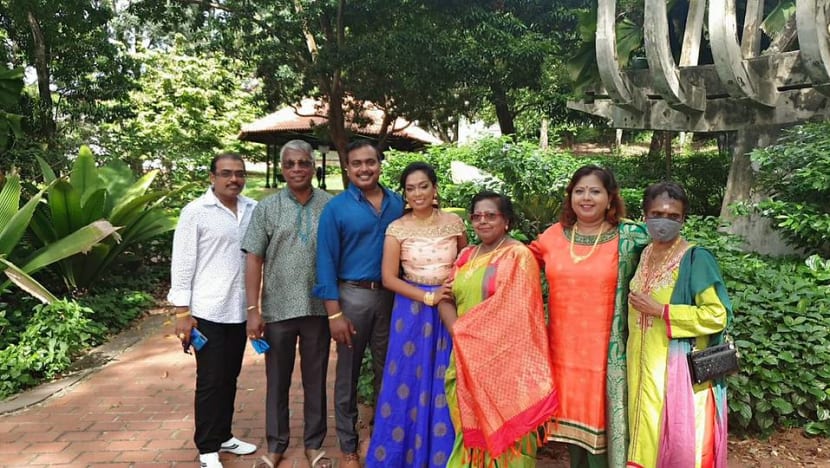
Gitanjali (in peach top) and her husband, Vijaya Kumar (beside her), wedded last month with help from a matchmaker. (Photo credit: Gitanjali)
SINGAPORE: When his daughter was aged 30 and single, G Raju sought help from a traditional matchmaker to find her a life partner.
Within six months of a successful match in 2017, his daughter got married; he is now the proud grandfather of a two-year-old girl.
“In Singapore, we’re very open-minded, and we want our kids to find their own partner. But she was getting older, so we decided to help her,” said the 67-year-old. “Matchmaking is just an option … We got her permission of course.”
He acknowledged that she may have had difficulty finding a partner as his family were very protective towards her.
“Because of this, there were (fewer) chances of her getting to know the other gender. Women (these days) are also more educated and are working, so they may have less time to find a partner,” he added.
This practice of engaging traditional matchmakers continues among Indian communities here, even with the availability of modern options for meeting people, like dating apps.
But it is not all like the trending Netflix series in which Mumbai-based matchmaker Sima Taparia tries to find partners for the participants.
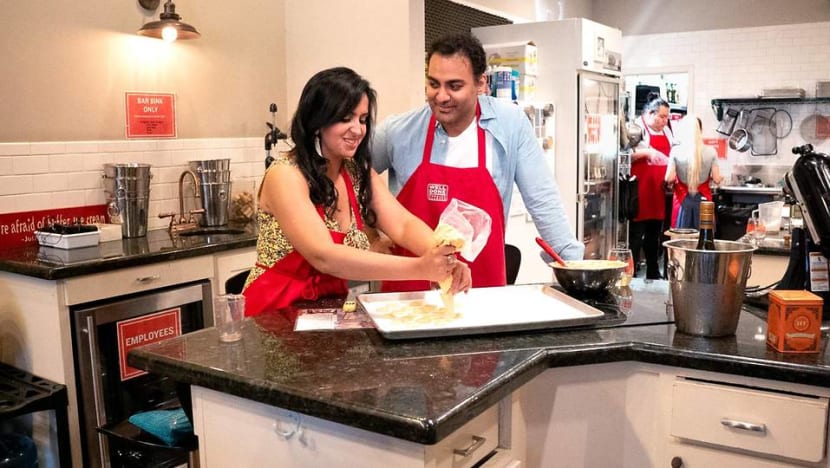
The show, Indian Matchmaking, gives audiences a glimpse into the world of arranged marriages in Indian culture.
It has also stirred up controversy over its representation of the importance of physical appearance, and its purported perpetuation of fair-skin obsession and casteism.
While matchmakers tell CNA Insider things are different in Singapore and more in sync with what society feels is acceptable, times are tough for them, with the numbers of Indian matchmakers and their clients having shrunk considerably.
And they think it will not be long before the practice goes the way of matchmaking traditions in other ethnic communities here — all but dying out.

TOPIC OF CASTE SELDOM MENTIONED
In Singapore, the traditional matchmakers are largely women, which makes M Govindaraju, who is known by his nickname Mago, somewhat of a rare breed.
The former army officer has been in this industry for 40 years, hooking up some 400 couples and counting.
Matchmaker Meenachi Suppiah, on the other hand, has been doing this part-time for six years and has made 25 matches so far.
Both of them, who have not seen the Netflix show, said the topic of caste hardly comes up as a selection criterion.
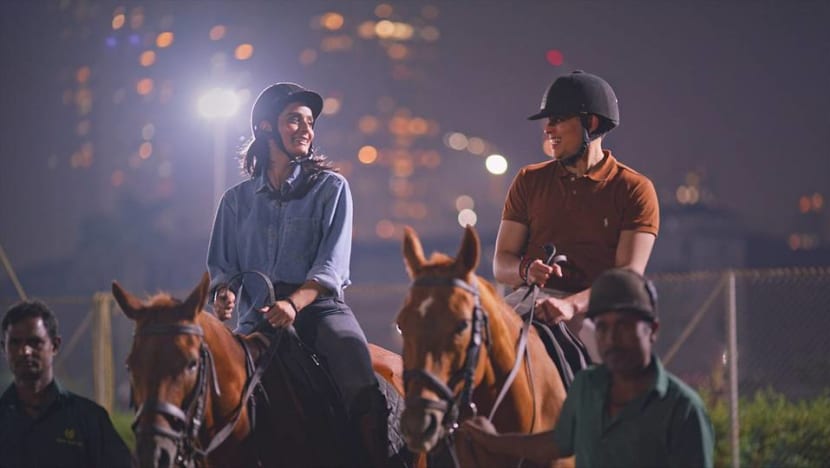
“It’s something that, in Singapore, isn’t so strong,” said Meenachi, who is in her 40s. “Maybe two or three per cent of the people would say that ‘I want (someone) of the same caste’ or something like that.”
Raju, who has not seen the show either, felt that caste has no place in Singapore.
“Our priority is a strong bond between them (the couple), and that the boy has a stable job, a stable income and (has) a good character,” he said.
Defence executive officer Gitanjali, who got married last month with help from Meenachi, said caste may be important to the older generation but is irrelevant to her.
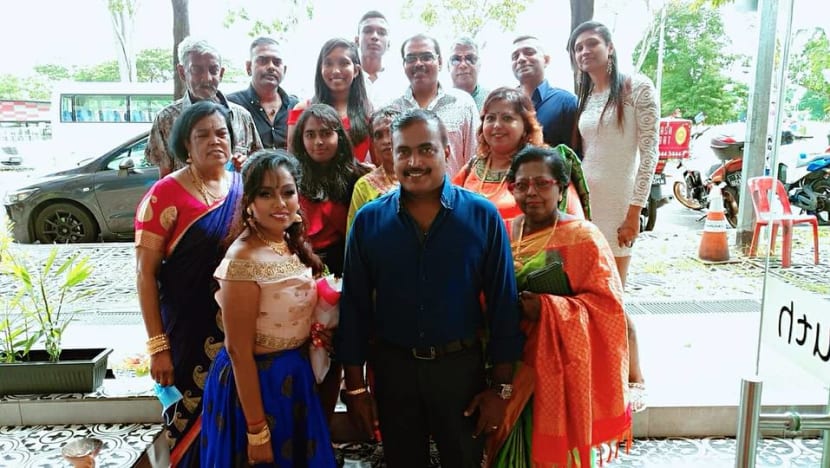
“I’m more concerned about the character of the person, how responsible he is, and his career,” said the 43-year-old, who was previously in a "love marriage" and remarried another divorcee.
Typically in Singapore, education, profession and health are what clients are more particular about, said Mago, who helped Raju find his daughter her match.
Some clients insist that their prospective partner should not have habits like smoking or drinking, and on top of everything else, there are some who are fixated on looks. This is Meenachi’s biggest bugbear.
“They aren’t even reading the profile; they’re just looking at the picture,” she said. “They want someone who can do everything. I tell them that they’ll have to wait quite long, or that it’s just unrealistic.”
‘WORRIED ABOUT THE GIRLS’
The two matchmakers said it is usually parents who approach them, after getting the children’s consent, and remain involved in the decision to pick suitable candidates.
These parents also place a great deal of trust in the matchmakers, who pride themselves on knowing the good or unsavoury characters in their community.
Mago, 70, said he got into this industry to help single women find love. While volunteering at grassroots events in the 1980s, he encountered many unmarried women and “wanted to do something for them”.
“I was worried about the girls, especially the girls who were going to be alone or lonely when they get older,” he said. “That’s why I started going round looking for the right people, (asking) whether they’re married or not.
“I didn’t create this (service) to make money.”
He charges S$150 for registration and S$1,000 for a successful match.
The first meeting between the couple usually takes place at a fast-food outlet “because it’s quieter”, he said, adding that he does not believe in showing them photos of each other before the meeting.
Sometimes the photo doesn’t match the face. I want to manage their expectations.
At this meeting, he usually gives the couple 15 minutes alone to talk. “If they call me after that and extend the time, it’s good news,” he added with a smile.
For widows and those with disabilities, he said he provides his services for free.
PRESSURE FROM RELATIVES
Over the years, although attitudes towards love and marriage have changed and there are dating apps like Tinder and Coffee Meets Bagel, some people prefer traditional matchmaking services.

Mago said this culture is still prevalent in the Indian community as some parents feel the pressure from relatives and friends who think children should be married and start a family by a certain age.
“So the parents take a more proactive role. They feel that it’s their duty to help their children,” he said.
“Some parents are also quite conservative and protective, especially towards the daughters. So they want to have a say in choosing the partner.”
Mago said parents who approach him are not open to using dating apps or have not yet taken to the idea.
Some parents, especially those with daughters, also feel uncomfortable with posting a photograph on dating apps for all to see, said Meenachi.
“Dating sites are where people go to look out for some companionship,” she added. “People who go to Tinder aren’t usually looking for a life partner.”
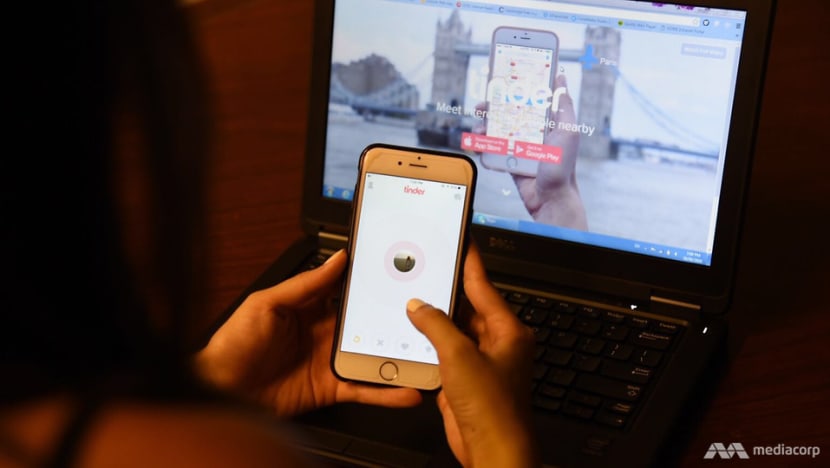
OBSOLETE SOON?
The practice of matchmaking and arranged marriages in Indian culture, said Meenachi, has been passed down from generation to generation like the use of fingers and banana leaves to eat food and the wearing of the bindi.
Many families still take pride in these traditions, including their “methods of bringing up children”.
She added that while there are Westernised families who allow children to bring their boyfriend or girlfriend home, the conservative ones do not and would insist on the traditional ways “even when it comes to marriage”.
Mago foresees that in the next five to 10 years, however, no one will enlist help from matchmakers in his community, as people have more opportunities to meet now, especially in the workplace.
Last year, he managed to match only five couples, compared to the 1980s and 1990s, when he could pair off 10 to 15 couples a year.
That is good news, he said. “I feel very happy because they now have the opportunity to choose their own partner in their daily life, maybe through their working life, their own social circle or via Facebook.”
Meenachi shares his view. When she started doing this, she could pair off six couples a year resulting in marriages. But in recent years, that number has halved.
She remembers a time when bringing singles together used to be easy — and matchmakers had only to ensure that the couple’s horoscopes matched as a requirement for marriage. The bride and groom had little say in the matter.
“If (their horoscopes) match … the next time they’d meet is for the wedding. That’s about it,” she said. “The matchmaker has a 100 per cent success rate.
If the guy had a job or a business and the woman could cook, it would be a done deal. If the woman could sew, it was an added bonus … Matchmaking was such a blooming business.
FOR OTHERS, NOT BOUND BY TRADITION
Among some other communities here, matchmaking was once popular but is rarely practised today.
In the Malay/Muslim community, matchmaking services are available, albeit not in the traditional sense — with dating apps such as Muzmatch, Minder and Joompa performing the role, said Institute of Policy Studies research fellow Mohamad Shamsuri Juhari.
“You also have mosques that organise specific events with matchmaking as an objective,” added the researcher, who focuses on Malay-Muslim issues.
“Like any progressive community, young single Malay/Muslims prefer to do it on their own. And some are not preoccupied with getting married.”
Among Peranakans, professional matchmakers ceased to play a significant role in arranging marriages after World War II, according to the Peranakan Association Singapore.
They used to help families ensure that prospective spouses had matching “ba zi” (eight characters), or birth charts, in consultation with astrologers. If there was a clash, the union was not recommended.
“This reliance on astrology is no longer relevant today, as many Peranakans have moved away from traditional beliefs,” said Dawn Marie Lee, the association’s head of communications.
Arranged marriages and matchmaking may also not be relevant when most young, single Singaporeans can turn to dating apps, noted National University of Singapore sociologist Tan Ern Ser.
Or, as the matchmakers said, many people have a chance of meeting prospective partners at work or in social situations.
“I doubt they’d depend on their parents, (and) I don’t see them depending on matchmakers,” he added. “The idea is that you should be free to choose who you want to marry.”















